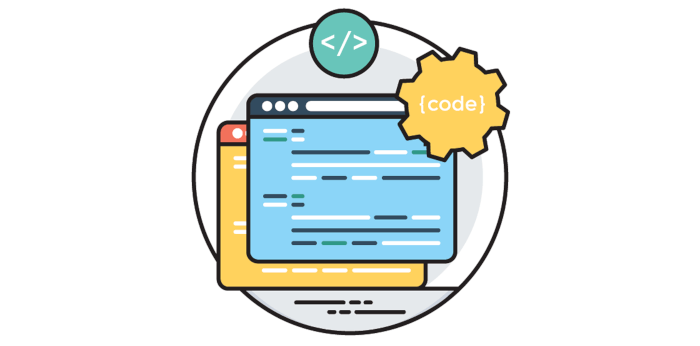Clojure is a dynamic, functional, homoiconic, open source programming language that targets the Java Virtual Machine (and the CLR, and JavaScript). It is a dialect of the Lisp programming language. Clojure programs are composed of expressions and written in terms of abstractions.
Clojure is designed to be a general-purpose language, combining the approachability and interactive development of a scripting language with an efficient and robust infrastructure for multithreaded programming. Clojure is a compiled language, it compiles directly to JVM bytecode, yet remains completely dynamic. Every feature supported by Clojure is supported at runtime.
This programming language provides easy access to the Java frameworks, with optional type hints and type inference, to ensure that calls to Java can avoid reflection.
Clojure is designed to be a hosted language, sharing the JVM type system, GC, threads etc.
Clojure requires only Java 1.5 or greater, plus the Clojure JAR file itself.
Features include:
- Compiles all functions to JVM bytecode.
- Tight Java integration: By compiling into JVM Byte code, Clojure applications can be easily packaged and deployed to JVMs and application servers without added complexity. The language also provides macros which make it simple to use existing Java APIs. Clojure’s data structures all implement standard Java Interfaces, making it easy to run code implemented in Clojure from Java.
- Dynamic development with a read-eval-print loop. Compiling ahead-of-time is possible, but not required. Clojure has arbitrary precision integers, strings, ratios, doubles, characters, symbols, keywords.
- Functions as first-class objects.
- Emphasis on recursion and higher-order functions instead of side-effect-based looping.
- Lazy sequences.
- Provides a rich set of immutable, persistent data structures (including hashmaps, sets and lists).
- Atoms provide a way to manage shared, synchronous, independent state.
- Concurrent programming through software transactional memory, an agent system, and a dynamic var system.
- Full support for JVM primitive values by default, allowing high performance, idiomatic Clojure code for numeric applications.
- Multimethods to allow dynamic dispatch on the types and values of any set of arguments (cf. the usual object-oriented polymorphism which dispatches on the type of what is effectively the first method argument).
- Sophisticated macro system which allows the compiler to be extended by user code.
Website: clojure.org
Support: Documentation
Developer: Rich Hickey
License: Eclipse Public License 1.0
Return to New Programming Languages
| Popular series | |
|---|---|
| The largest compilation of the best free and open source software in the universe. Each article is supplied with a legendary ratings chart helping you to make informed decisions. | |
| Hundreds of in-depth reviews offering our unbiased and expert opinion on software. We offer helpful and impartial information. | |
| The Big List of Active Linux Distros is a large compilation of actively developed Linux distributions. | |
| Replace proprietary software with open source alternatives: Google, Microsoft, Apple, Adobe, IBM, Autodesk, Oracle, Atlassian, Corel, Cisco, Intuit, SAS, Progress, Salesforce, and Citrix | |
| Awesome Free Linux Games Tools showcases a series of tools that making gaming on Linux a more pleasurable experience. This is a new series. | |
| Machine Learning explores practical applications of machine learning and deep learning from a Linux perspective. We've written reviews of more than 40 self-hosted apps. All are free and open source. | |
| New to Linux? Read our Linux for Starters series. We start right at the basics and teach you everything you need to know to get started with Linux. | |
| Alternatives to popular CLI tools showcases essential tools that are modern replacements for core Linux utilities. | |
| Essential Linux system tools focuses on small, indispensable utilities, useful for system administrators as well as regular users. | |
| Linux utilities to maximise your productivity. Small, indispensable tools, useful for anyone running a Linux machine. | |
| Surveys popular streaming services from a Linux perspective: Amazon Music Unlimited, Myuzi, Spotify, Deezer, Tidal. | |
| Saving Money with Linux looks at how you can reduce your energy bills running Linux. | |
| Home computers became commonplace in the 1980s. Emulate home computers including the Commodore 64, Amiga, Atari ST, ZX81, Amstrad CPC, and ZX Spectrum. | |
| Now and Then examines how promising open source software fared over the years. It can be a bumpy ride. | |
| Linux at Home looks at a range of home activities where Linux can play its part, making the most of our time at home, keeping active and engaged. | |
| Linux Candy reveals the lighter side of Linux. Have some fun and escape from the daily drudgery. | |
| Getting Started with Docker helps you master Docker, a set of platform as a service products that delivers software in packages called containers. | |
| Best Free Android Apps. We showcase free Android apps that are definitely worth downloading. There's a strict eligibility criteria for inclusion in this series. | |
| These best free books accelerate your learning of every programming language. Learn a new language today! | |
| These free tutorials offer the perfect tonic to our free programming books series. | |
| Linux Around The World showcases usergroups that are relevant to Linux enthusiasts. Great ways to meet up with fellow enthusiasts. | |
| Stars and Stripes is an occasional series looking at the impact of Linux in the USA. | |
